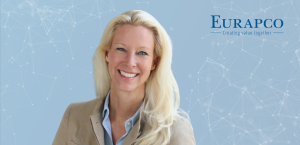The insurance industry has readily embraced AI as an opportunity to evolve and improve its business operations, and thus is deploying AI (Artificial Intelligence) solutions across various functional areas. However, most companies still struggle where to begin and have therefore decided -in the first phase- to limit their AI experiments to pilot projects. As the industry has yet to fully transform through widespread AI adaption, pilot projects present the fastest and least-risky learning path, allowing to explore which solution best fits the existing IT ecosystem of the organization and ultimately secure a successful implementation.
Language models such as ChatGPT are viewed as becoming unique “killer technologies” for the insurance industry, meaning they represent a radical innovation which will quickly obliterate the usage value of the current techniques and processes. The reason being that most activities of the insurance branch revolve around working with unstructured text for:
- Processing applications and claims
- Assisting customers
- Evaluating documents for underwriting and risk analysis
And this is exactly where Large Language Models (LLM) such as ChatGPT shine and why this modern technology is having such an impact as well in the insurance industry. These applications are at the forefront of the AI evolution and are virtually impossible to compete with, as they allow to quickly read, answer questions, provide information, generate texts such as documents, reports as well as summaries, and even can analyze and classify texts. ChatGPT’s capabilities are so broad that experts across the industry develop and discover new use cases and applications every day.
Nevertheless, there are limitations for these Large Language Models.
For example, they should not be applied for high-stake tasks, as the outcome can be inaccurate, give biased responses or use repetitive phrases that can adversely affect the content’s overall quality. Care should also be taken when discussing legal and ethical issues, solving complex problems, or wanting to give personalized advice. It is therefore particularly important to phrase the questions and instructions precisely as ChatGPT is not merely a database containing information, but a “brain” that ultimately learns from the information it is given and has access to. It can also be further trained by allowing access to a company’s knowledge base, policies, services, and customer conversations. By carefully wording tasks and questions, the users can slimmer the error gap for misinformation.
AI Activity Within Eurapco
Eurapco has taken on the AI topic and is currently sharing its knowledge and insights with the partner companies on a regular basis. For this, several webinars are being hosted, which shall explain the present and future technologies, share the European AI regulations and guidelines, as well as other services of data excellence. Eurapco also puts emphasis on communicating its partners’ achievements and errors, so that through collaboration best practices can be shared as well as mistakes, in order to avoid redundancies.
The Eurapco partners closely work together to train and co-develop AI solutions, while the data ambassadors offer valuable consultation and guidance for the insurers, enabling them to understand the technology, and offer support for an efficient implementation.
Of course, we are just experiencing the early stages of AI, nevertheless the Eurapco Partners have clearly recognized the value and are already investing in its future.
Here are some examples of Eurapco’s Partners’ efforts in the implementation of OpenAI:
- La Mobilière is working on multiple LLM projects, namely MobiGPT, CodeGPT and InsuranceGPT. MobiGPT as an example is an international ChatGPT for all its employees, without any limitation.
- Achmea uses Azure OpenAI for various kinds of use cases, for example as a chatbot with internal knowledge. It uses OpenAI as a productivity-enhancing technology for internal use, yet under human supervision for the time being. Achmea even created a new HR team, dedicated to LLM.
- Gothaer however, also sees risks for using ChatGPT, as fraud claims can easily be created, which would very well cause damage to the company. A training platform called GoChat was developed for its employees, based on Azure OpenAI. Gothaer uses LLMs for large scale information retrieval, using a natural language interface.
- Länsförsäkringar sees large-scale potential and growth for the insurance sector, and for various use-cases within its company, such as using OpenAI to improve customer interactions as well as improving document- and data-quality and management.
- Reale’s interest in LLMs has grown enormously in recent months, using AI for text classifications, semantic matching as well as creating a chatbot for information retrieval and conversational AI.
- Caser is currently in the early stages of researching possible advantages and advancements for the analytics sector with the use of ChatGPT.
- UNIQA uses ChatGPT as a chatbot as well as an infobot – in addition also for office copilots and copilots for software development.
If you want to know more about what Eurapco and its partners are doing concerning ChatGPT/OpenAI, click here to view the full webinar: Webinar: Getting Value From OpenAI/ChatGPT (Part 2) – EURAPCO
We also have an upcoming webinar on 6th of September, regarding the Eurapco AI Ethical Principles – EU AI Act, click here to register: Webinar: Getting Value from Eurapco AI Ethical Principles – EU AI Act




